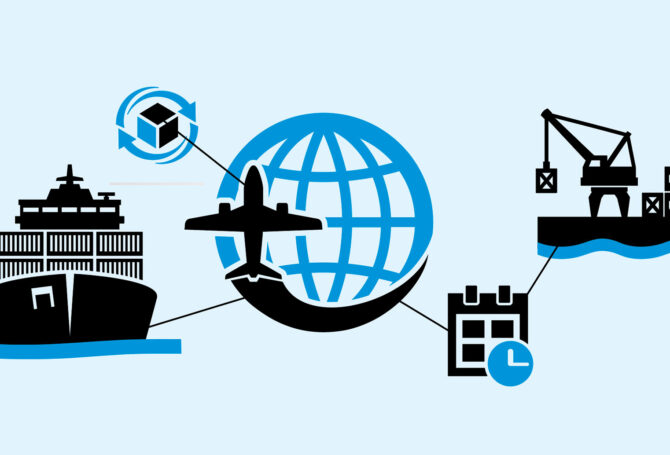
Five bipartisan bills introduced last week in Congress target big tech monopolistic behavior such as charging high fees, forcing smaller customers into unfavorable contracts and making “killer acquisitions” to thwart would-be competitors.
The legislation would prohibit big tech from selling products in and manipulating marketplaces they control, make it harder to purchase competitors and make it easier for users to leave a social media platform with their own data. One of the bills would increase fees to pay for antitrust enforcement actions. The measures track closely with findings from a 16-month investigation conducted by the House Antitrust Subcommittee that was released last year.

The bills, which would be the most ambitious antitrust policy changes in decades, take aim at Amazon, Apple, Facebook and Google. “From Amazon and Facebook to Google and Apple, it is clear these unregulated tech giants have become too big to care,” says Democratic Washington Congresswoman Pramila Jayapal, one of the sponsors who represents Seattle and is a member of the subcommittee. Amazon employs more than 45,000 workers in Seattle and 11 percent of Seattle’s workforce is employed by tech companies of various sizes.
Here are the five bills introduced to curb big tech commercial power:
- The American Choice and Innovation Online Act – this bill prevents companies from manipulating marketplaces to promote their own products.
- The Platform Competition and Opportunity Act of 2021 – this bill makes it harder for companies to buy and kill off competitors.
- The Ending Platform Monopolies Act – this bill prohibits Big Tech monopolies from selling products in marketplaces they control.
- The Augmenting Compatibility and Competition by Enabling Service Switching (ACCESS) Act of 2021 – this bill makes it easier to leave a social media platform and take your data to a competitor.
- The Merger Filing Fee Modernization Act of 2021 – this bill allows the Department of Justice and the Federal Trade Commission the resources they need to police monopoly power, at no cost to taxpayers.
“Right now, unregulated tech monopolies have too much power over our economy. They are in a unique position to pick winners and losers, destroy small businesses, raise prices on consumers and put folks out of work,” said Congressman David Cicilline, D-Rhode Island and chair of the House Judiciary’s Antitrust Subcommittee. “Our agenda will level the playing field and ensure the wealthiest, most powerful tech monopolies play by the same rules as the rest of us.”
“The legislation could reshape the way the companies operate. Facebook and Google, for instance, could have a higher bar to prove that any mergers aren’t anticompetitive. Amazon could face more scrutiny when selling its own branded products like toilet paper and clothing. Apple could have a harder time entering new lines of business that are promoted on its App Store,” according to reporting by The New York Times.
Tech giants also are on the radar of regulators and lawmakers in Europe, India and Australia who seek to curb their commercial power. Lawsuits have been filed charging high tech companies with anti-competitive behavior.
Consumer advocates and some businesses hailed the House legislation. “Big Tech’s unchecked growth and dominance have led to incredible abuses of power that have hurt consumers, workers, small businesses and innovation,” Robert Weisman, president of the advocacy group Public Citizen, said. “That unchecked power ends now.”
“These are just the type of new laws we need to really address the problem of gatekeeper power by dominant digital platforms,” claims Charlotte Slaiman, competition director for Public Knowledge. “Big tech firms have so many powerful tools to protect their monopolies. These bills would give antitrust enforcers a few more powerful tools to open up digital platform markets for competition.”
Roku, which sells online streaming media devices, alleged large tech companies “flagrantly ignore” antitrust laws. “An aggressive set of reforms is needed to prevent a future where these monopolists further abuse consumer choice and hamper access to innovative and independent products,” it said.
The Chamber of Progress, which includes big tech companies as members, warned the legislation would produce unappreciated consequences for consumers. “Banning conveniences like Amazon Basics brand batteries, Apple’s Find my Phone tool or Google Maps appearing in Google search results are ideas that would spark a consumer backlash,” Adam Kovacevich, head of Chamber of Progress, told the Times.
“Bills that target specific companies, instead of focusing on business practices, are simply bad policy… and could be ruled unconstitutional,” Neil Bradley from the US Chamber of Commerce said in a statement.
In the past, high tech firms have hired armies of lobbyists, sponsored think tanks and retained antitrust litigation law firms to defeat proposals that affect their business models. They are likely to turn again to that successful strategy.
Big Tech’s unchecked growth and dominance have led to incredible abuses of power that have hurt consumers, workers, small businesses and innovation.
The easiest of the five bills to advance is the one providing more funding, through higher merger fees, for antitrust enforcement. Similar legislation has already passed in the Senate. Another piece of low-hanging political fruit is the bill to allow consumers to move their data from one social media platform to another. The bills that would impede big tech business practices may prove harder to sell.
Congressional Republicans, especially those still supporting former President Trump, seem most concerned about alleged censorship by tech companies such as Facebook and Twitter. Congressman Ken Buck, R-Colorado and a member of the subcommittee, wants to ensure the legislation is written narrowly enough to avoid unintentionally hindering smaller tech firms.
In another sign of bipartisan support for cracking down on big tech, the Senate has confirmed Lina Khan, a critic of tech company business practices, as chair of the Federal Trade Commission by a vote of 69-28. Khan, at 32 the youngest person to serve on the FTC, is known for her 2017 paper titled “Amazon’s Antitrust Paradox,” which argued that decades-old antitrust laws aren’t equipped to deal with the e-commerce giant and the unique ways it exerts its dominance.




